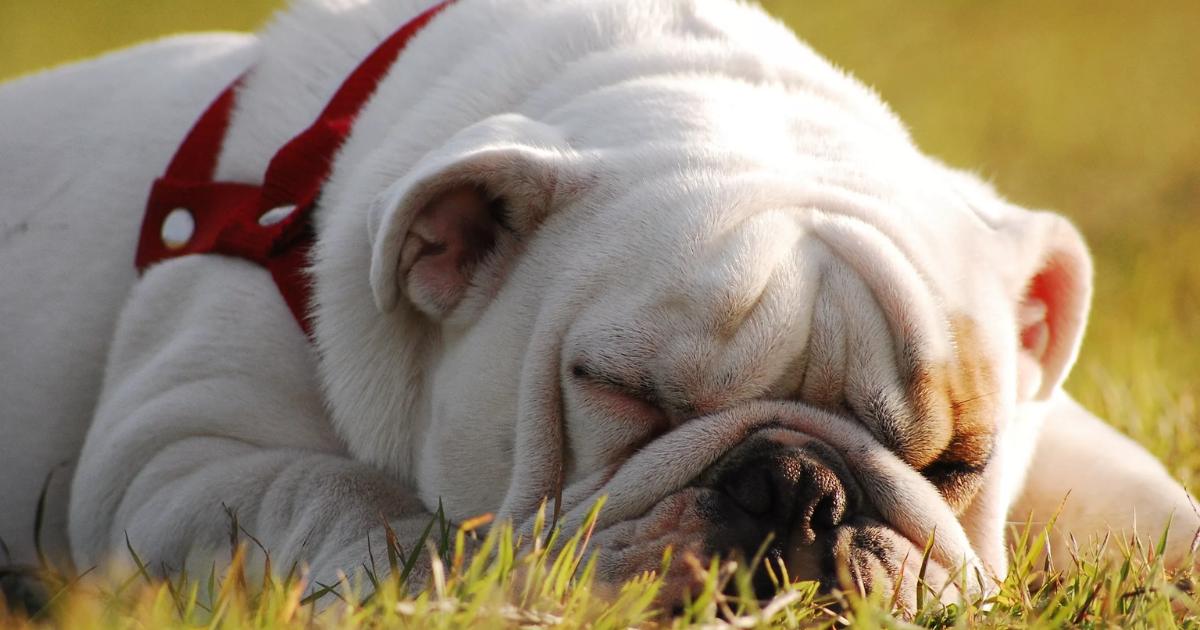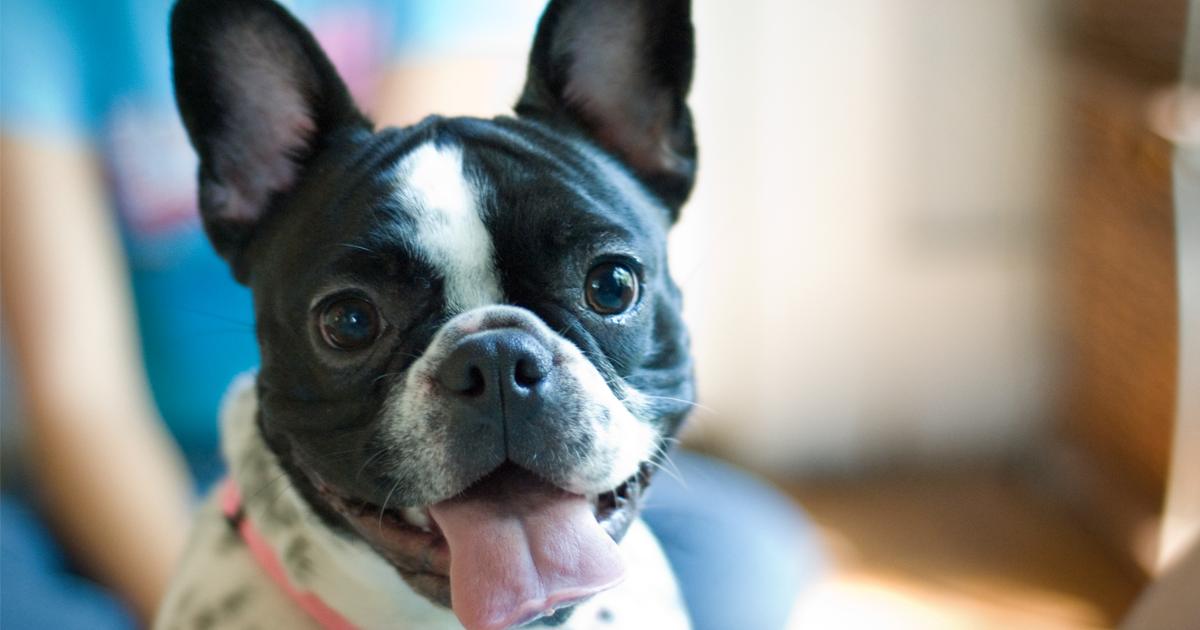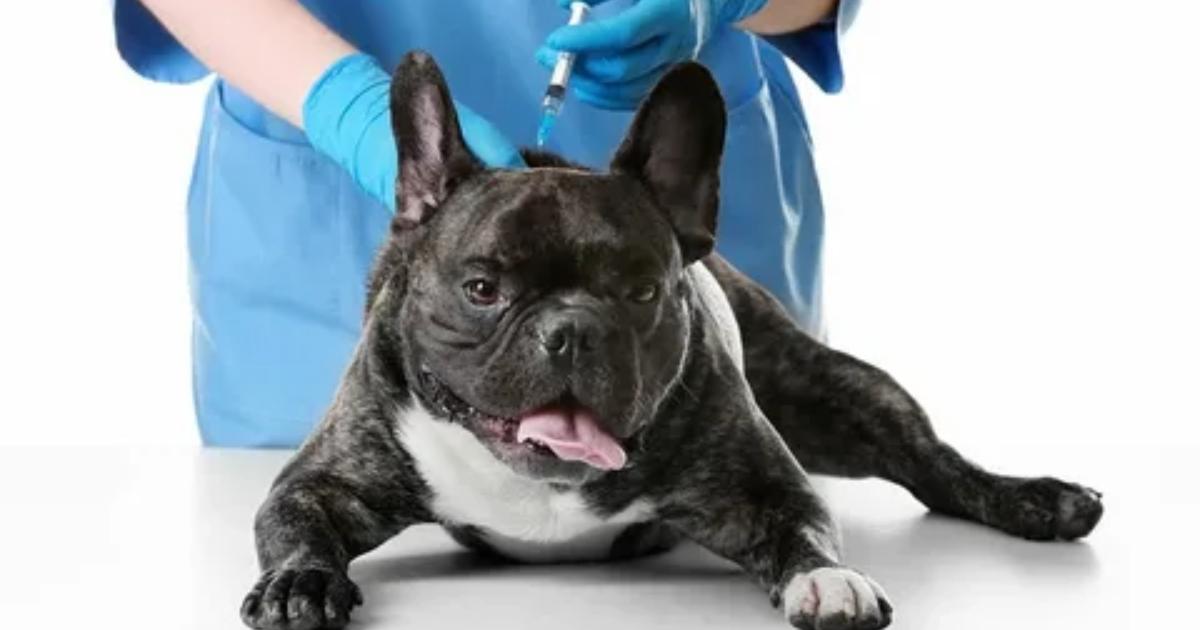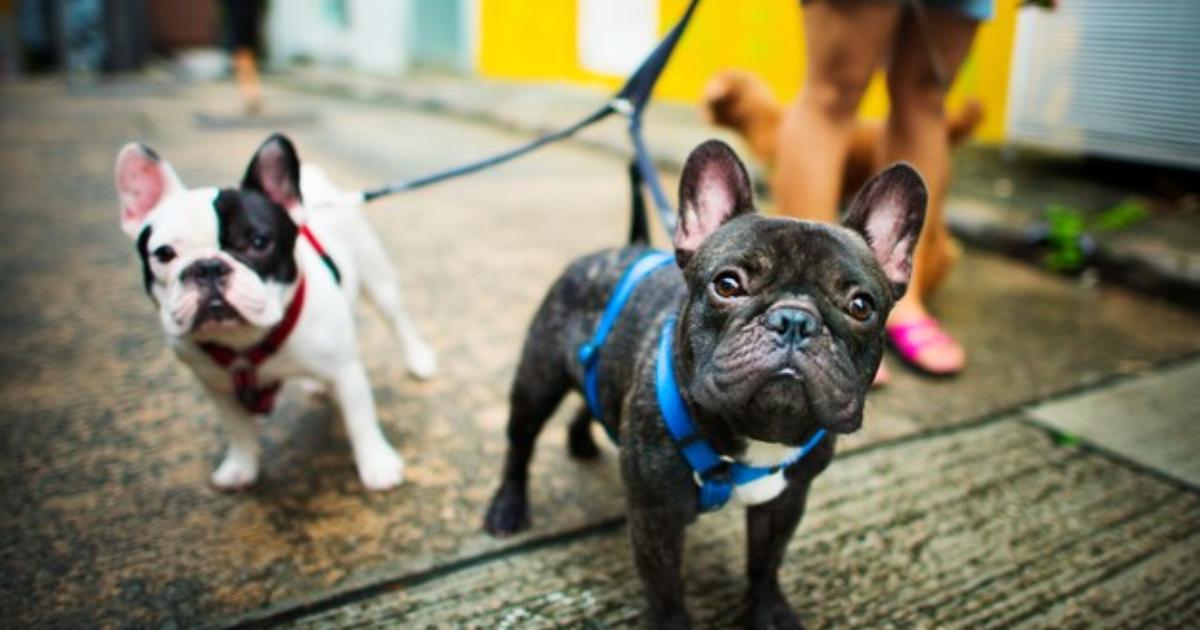The French Bulldog is a small companion dog from France. They have bat ears, squashed faces, and muscular bodies. They make great apartment pets as they don’t need much exercise. “French Bulldog” is a popular breed. They have fun personalities and are loyal. Their small size is good for cities. They like playing and snuggling. The French Bulldog is a charming small dog. Weighing under 30 pounds, they are suited for apartments. They are playful and enjoy entertaining, but also relax at home. They bond strongly with families.
History of the Breed
The French Bulldog originated in England in the 1800s when lace workers from Nottingham settled in Normandy, France. They brought small bulldogs with them which were bred with local ratters. The resulting toy bulldogs gained popularity in Paris, becoming known as French Bulldogs.
They quickly became fashionable pets and mascots among society ladies, artists, and writers. By the late 1800s, French Bulldogs were exported to North America and other parts of Europe. The breed was officially recognized by the AKC in 1898.
Physical Attributes

French Bulldogs are a muscular, compact dog averaging 11-13 inches tall at the shoulder and weighting 18-28 pounds. They have a smooth, short coat that comes in a variety of colors like fawn, brindle, white, and pied. Their signature features include:
- Bat ears: Large, erect ears that stand straight up
- Squashed face: A short muzzle and flattened face
- Dark, expressive eyes
- Compact, stocky body: Short limbs and a muscular frame
- Curled tail: Either straight or screw-shaped tail
Their wrinkled faces and wideset eyes give French Bulldogs an intelligent but comical expression.
Temperament
The French Bulldog has an easygoing, pleasant temperament. They form strong bonds with their human families. Known for their playful, amusing antics, Frenchies make excellent companion pets. They tend to be bright, alert, and adaptable. Additional characteristics include:
- Affectionate: Enjoy receiving attention and being close to their owners
- Playful: Fun-loving dogs that enjoy playing games and entertaining people
- Calm: Generally relaxed and not high-strung when properly exercised
- Patient: Tolerant of children and good with other pets when socialized early
- Minimal barkers: Not prone to excessive barking
Exercise and Activity

French Bulldogs require less activity than many breeds due to their smaller size and moderate energy levels. They adapt well to apartment living. Daily short walks and indoor play sessions are usually sufficient. Frenchies should not be left alone for long periods without human interaction. Owners should be prepared to spend time interacting with their Frenchie each day.
Activities French Bulldogs enjoy include:
- Short walks
- Playing games like fetch
- Learning tricks and dog sports
- Sniffing and exploring on walks
- Cuddling and hanging out with their owners
As a brachycephalic breed, French Bulldogs cannot tolerate high heat, humidity or extensive exercise. All activities should be kept brief to prevent overexertion, panting, and respiratory distress.
Training
French Bulldogs are moderately easy to train if positive reinforcement methods are used consistently. Food rewards and praise work best when teaching them basic commands and manners. Their aim to please makes them responsive, although some stubbornness can arise.
Owners should be patient and keep training sessions short and fun. Proper early socialization is key to ensuring French Bulldogs get along with other household pets and children. Owners may want to use professional training help with this breed.
Grooming and Care

The French Bulldog’s smooth, short coat requires minimal grooming. An occasional brushing plus wiping their face wrinkles weekly is typically all that is needed. Bathing should only be done when necessary using a gentle dog shampoo. Their facial wrinkles, skin folds, and ears should be checked and cleaned regularly to avoid infection.
Other aspects of their care include:
- Nail trimming every 2-3 weeks
- Brushing teeth 2-3 times per week
- Monitoring diet and weight
- Checking and cleaning ears weekly
- Protecting from heatstroke and respiratory issues
Due to their flat face structure, French Bulldogs are prone to eyer, respiratory, and spinal problems. They may struggle in hot, humid weather. Owners should be prepared for higher veterinary costs.
Feeding and Nutrition
French Bulldogs should be fed high-quality dry dog food appropriate for their size and age. Typical feeding guidelines are:
- Puppies: 3-4 meals per day
- Adults: 1-2 meals per day
- Quantity: 1/2 to 1 1/2 cups daily divided into meals
The kibble size should be small for this breed. Owners should monitor their Frenchie’s weight and adjust food accordingly to avoid obesity. Treats should be kept to a minimum. French Bulldogs are prone to food allergies so a veterinarian may recommend special diets.
Puppy Care and Training
Caring for a French Bulldog puppy requires extra time and patience. Potty training takes 4-6 months on average with crate training recommended. Puppies should be fed 3-4 small meals a day and have fresh water always available. Vet check-ups, immunizations, and deworming will be needed starting at 8 weeks old.
Early socialization and training are essential for raising a well-adjusted Frenchie. Puppies should be gradually introduced to new sights, sounds, dogs, and people from 8-12 weeks old. Short, positive training sessions using praise and rewards should begin around 8 weeks old as well. Owners may want to take a puppy kindergarten class.
Is a French Bulldog Right for Me?

Before getting a French Bulldog, prospective owners should consider if the breed matches their lifestyle and preferences. The traits and needs of French Bulldogs are well-suited for some but may be challenging for others. Key considerations include:
- Activity level: Frenchies need only moderate exercise but require regular playtime and interaction.
- Apartment living: Their small size makes them a good choice for apartments.
- Grooming: Requires some face wrinkle and skin fold cleaning but overall not high maintenance.
- Sensitive health: Higher veterinary costs likely due to breathing and spinal issues.
- Companionship: Forms close bonds and thrives on being with their family. Not suited to being left alone for long periods regularly.
- Training: Moderately easy to train using positive reinforcement techniques.
For individuals or families seeking an affectionate small companion dog to brighten their daily life, the French Bulldog can make a delightful pet when properly cared for. Their captivating charm explains the growing popularity of this breed. With their liveliness, patience, and ability to adapt, French Bulldogs can flourish in a variety of households. They bring comedy and loyalty to the lives of those who love them.
Quick Facts
| Size: | 11-13 inches tall |
| Weight: | 18-28 pounds |
| Coat: | Short, smooth |
| Color: | Varies, often fawn |
| Lifespan: | 10-12 years |
| Origin: | France |
| Temperament: | Friendly, playful, calm |
| Exercise: | Moderate |
| Training: | Moderately easy |
| Grooming: | Low maintenance |
| Shedding: | Minimal |
| Good with kids: | Yes |
| Good with other pets: | Usually, with socialization |
| Apartment living: | Excellent |
Owning a French Bulldog

Deciding to get a French Bulldog is a big commitment. These dogs have unique care needs and form strong bonds with their families. Being well prepared will help ensure a good experience for both dog and owner. Here are some key things to know before and after getting a Frenchie.
Choosing a French Bulldog
Take time finding a responsible breeder or rescue group. Ask to see health clearances for conditions like hip dysplasia and eye issues. Visit several times to check the puppies are handled regularly and appear lively and healthy. Be wary of breeders who have many litters available or won’t allow visits. Avoid pet stores.
When selecting a puppy, look for one that is interested in you and is not timid. Get guidance from the breeder on picking an energetic yet calm pup. Be sure to budget $2,000+ for purchase and initial supplies, plus ongoing costs for food, medical care, insurance, and supplies.
Preparing Your Home
Frenchies can be housed safely with some adjustments:
- Baby gates to prevent access to stairs
- Securing electrical wires and eliminating loose small objects they could swallow
- Dog crate and bed ready for when you are not home to supervise
- Designated, easy to clean potty area if not using puppy pads
- Non-slip surfaces on hard floors
- Air conditioning and/or cooling mats for hot days
- Designating an off-limit room or keeping doors closed if needed
Stock up on a collar, leash, food, treats, toys, cleaning supplies, and other essentials before your puppy arrives. Puppy-proof thoroughly so your new Frenchie will be secure.
House Training
French Bulldog puppies take 4-6 months to fully house train. Set them up for success by:
- Establishing a schedule with consistent feeding and potty times
- Using a properly sized crate when you cannot supervise them
- Rewarding and praising every time they go outside
- Catching accidents promptly and taking them outside
- Being vigilant and providing enough opportunities to relieve themselves
Crate training assists in potty training. Clean accidents thoroughly with an enzymatic cleaner to remove odor cues. Be patient and consistent.
Ongoing Health Care

French Bulldogs require regular veterinary care. Schedule well visits yearly and be vigilant for signs of illness. Expenses may include:
- Vaccinations and preventatives for parasites
- Testing and treatment for conditions like hip dysplasia, eye issues, allergies
- Medications for any chronic health issues
- Emergency costs for ingesting foreign objects, injuries, etc.
Keep up with dental care by brushing their teeth and providing chew toys. Monitor for overheating in warm weather. Follow your vet’s recommendations to keep your Frenchie healthy. Consider health insurance.
| Health Concern | Description |
| Brachycephalic Issues | Respiratory challenges due to their short snub nose, requiring careful monitoring during exercise. |
| Skin Problems | French Bulldogs may be prone to skin allergies and infections, necessitating regular skincare. |
| Joint Issues | Their compact build can lead to joint problems, emphasizing the importance of weight management. |
| Allergies | Sensitivity to certain foods or environmental factors may result in allergies requiring attention. |
Exercise and Mental Stimulation
Frenchies need daily attention and interaction with their family to stay happy. Make sure to provide:
- Short, regular walks and free play sessions indoors or in a fenced yard
- Interactive toys that dispense treats or make noise when batted around
- Varied toys to play fetch, tug of war, hide and seek, etc. Rotate frequently
- Training sessions to learn new commands and tricks
- Opportunities to watch outside their window or come with you on errands
- Play time and snuggles with family members
Keeping their mind and body active prevents boredom and behavior issues. But limit exercise on hot days to prevent overheating.
Socialization and Training
Early and ongoing socialization helps French Bulldogs be comfortable in new situations. Introduce them gradually to friends, children, other pets and environments like the vet’s office. Attend puppy classes for important social opportunities.
Use positive reinforcement training methods. Keep sessions under 10 minutes, varied, and fun. Practice basic obedience but also teach fun tricks. Avoid frustration and aggression by never physically punishing them. Hire a trainer if needed for specific issues.
Grooming Requirements
The French Bulldog’s grooming routine includes:
- Brushing once weekly to remove loose hairs
- Cleaning facial wrinkles a few times per week, especially after eating or drinking
- Checking and cleaning ears weekly for infection
- Clipping nails every 2-3 weeks or as needed
- Brushing teeth 2-3 times per week
- Bathing only when truly needed using a gentle dog shampoo
Their short coat requires minimal regular grooming but they do need attention to their facial and body folds. Establish these grooming habits early.
Travel and Public Outings

French Bulldogs often enjoy tagging along on adventures. Be prepared when bringing them places by:
- Having a secure car restraint system for safety
- Bringing their crate to contain them at your destination
- Packing food, treats, medications, clean-up bags, and other supplies
- Planning for their potty needs and access to water
- Not leaving them alone in hot vehicles and monitoring for overheating
- Putting identification tags on their collar and microchipping as a backup
With proper precautions, Frenchies can be enjoyable travel and outing companions. Be aware of their limitations in new environments when deciding what activities to attempt.
Finding Professional Care
Since French Bulldogs crave companionship, plan for care when you are away. Options include:
- A trusted friend, neighbor, or family member temporarily watching them in your home
- A professional pet sitter who provides visits to feed, walk, and play with them
- A reputable boarding kennel, preferably one familiar with the needs of French Bulldogs
- Bringing them to “doggie daycare” during the day if they are socialized
Always meet caregivers first and check references. Introduce the person to your Frenchie before leaving them. Follow their typical routine for consistent care.
Dealing with Behavior Issues
French Bulldogs are prone to some problematic behaviors that must be managed. Common issues include:
- Difficulty house training: Requires patience and consistency using crate training
- Separation anxiety: Give them attention before leaving, provide exercise/toys when alone, use calming aids if needed
- Stubbornness or aggression: Use only positive reinforcement training, never punishment
- Excessive barking: Identify triggers, give adequate exercise/playtime, use anti-barking devices if needed
- Destructive chewing: Provide acceptable chew toys, keep hazardous items out of reach, crate when unsupervised
Seek help from a professional trainer or behaviorist for ongoing issues. Your veterinarian can also check for underlying medical causes.
Enjoying Life with Your Frenchie
French Bulldogs make wonderfully amusing, affectionate companions when properly cared for. Shower them with love and attention while attending to their unique needs. In return, they will provide years of devotion, playfulness, and laughter. Cherish the special bond you share with your French Bulldog.
Final Thoughts
The French Bulldog is a fun and friendly dog. People like them because they are cute and make them laugh. Frenchies are good pets for people who live in small places like apartments. They do not need a big yard to play in. French Bulldogs stay pretty small when they are grown up.
Caring for a French Bulldog takes some work. Their flat faces mean they can have breathing problems. Their ears and wrinkles need cleaning. But they do not need lots of grooming or exercise. Frenchies love children and just being with their families. A French Bulldog can be the perfect pet for someone who wants a happy buddy. With good care, a Frenchie will be a loyal friend for many years.







